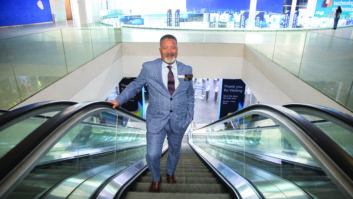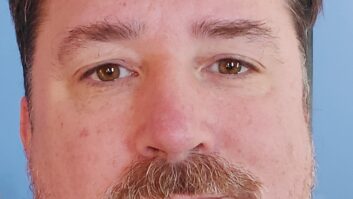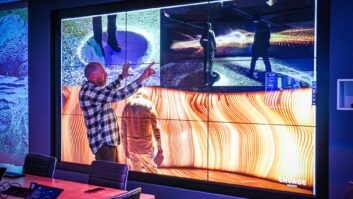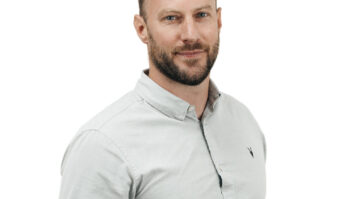
In this new feature, a leading industry figure tells us about the tools, techniques and tricks that they find useful in their work. First up is audiovisual consultant Blair Parkin.
Café loquacity
When we’re working on projects with clients, we always have a designated ‘project café’ somewhere offsite. This is because we’ve found that people generally speak more freely and frankly when they’re outside their normal working environment. It’s not because they forget they’re talking to a consultant, and they don’t have to be out of their boss’s earshot – there’s just something about being in an outside-of-work environment that puts people into a different mindset.
On-site insight
When you’re consulting at a company, it’s a good idea to get yourself a desk in their office for a few days, even if you bring other work to do there. That way you get to experience day-to-day realities that the top people, who generally have other people to sort things out for them, sometimes don’t. For example, if you were leading a group discussion and asked if the room booking system worked OK, the senior person in the group might say yes. If you didn’t know otherwise, that would be the end of the story. But if you say, “Actually, I tried to book a room the other day and it wasn’t a very straightforward process,” then he might turn to one of his colleagues and ask their opinion. So by having that inside knowledge and being able to challenge gently, you get a better result.
Psych dislike
I hate psychometric tests. They potentially make leadership lazy when recruiting and I don’t rely on them for recruiting great candidates. During my career I’ve worked with a number of brilliant people who would register negative indicators and would have been weeded out by psychometric tests. The thing is, you’re not looking for someone who’s going to be everyone’s best friend; you need someone who is great at what they do and isn’t going to get everyone’s back up after six months. We tend to use a more intensive interview and introduction technique to really hear what a candidate has to offer. It’s time consuming as it asks a number of questions more than once in different ways, but the results generally stand up.
Slack hack
At TEECOM, we’re big users of the team communication tool Slack. You set up ‘channels’ for different projects, groups or topics, and all the members of that channel have a transparent view of the communications that take place. If you want to ask someone a question, you can send them a direct message.
It has massively reduced the amount of internal email that we send – and it’s much more user-friendly for keeping track of all your different priorities and projects.
One of its features is Slackbot, which is like a personal assistant or help function. Our R&D people have written an app for Slack that takes the basic Slackbot to the next level. It’s called Presence Bot and you can use it to find out where someone is – because our office has grown to the size where you can’t see everyone’s desk from yours. So you ask, ‘Where’s David?’ and the app interrogates our HR system (to check annual leave), David’s calendar (to see if he has a scheduled appointment) and the office’s wi-fi system (to triangulate the signal of his smartphone). Presence Bot then tells you where David is – and it’s very accurate: “I last saw David near the all-hands space two minutes ago.” People have to opt in to make their information available in this way, but everyone has.
Digital snagging
Another way in which digital technology has made life a lot easier is with digital site plans. If you’re going round a project site to compile a snagging report, you can have the site plan on your iPad and annotate the relevant area with notes and photos. Not only is it quicker and easier than using paper plans and writing a report afterwards, it also gives the information visually, which is what tradespeople generally prefer.
To be or not?
Our CEO, David Marks, is a big advocate of a style of English called E-Prime. This involves not using the verb ‘to be’ in any of its forms – ‘is’, ‘are, ‘was’ and so on. The idea is that rather than making definitive-sounding statements, E-Prime forces you to be more considered in your phrasing and your thinking. It also tends to clarify whether something is an opinion or a fact. So rather than saying, “That is a great idea,” you might say, “I like that idea very much”. You also can’t use the passive voice to fudge matters: you can’t say, “Mistakes were made,” for instance. I can see some of the benefits of E-Prime, but I haven’t yet managed to use it in my project reports!
Blair Parkin is EMEA principal at international technology consultancy TEECOM. He was talking to Paddy Baker.
Image: © TEECOM







